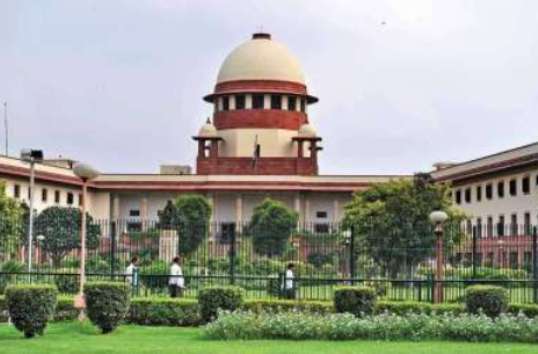Sushree Mohanty
In a significant turn of events, the Supreme Court has directed the Central government to file a response in concerning a plea contending against the Places of Worship (Special Provisions) Act, 1991 (Act).
The Act orders that character of all places of worship should be kept as it was on August 15, 1947 and no suit or procedures will lie in a court as for challenging the places of worship.
A three bench judge presided by Chief Justice of India, SA Bobde and including AS Bopanna issued the notice to the Centre on an appeal recorded by advocate and BJP representative Ashwini Kumar Upadhyay.
The law which was implemented in the wake of the Ram Janmabhoomi development seeks to secure the character of all religious spots as it was originally on the day of independence.
Additionally the law aims to ensure that no cases or suits are initiated by any individual which would challenge the status of such places of worship.
The law further orders that such cases already pending in courts would stand invalid or abated.
The Act, nonetheless, allows an exemption for Ram-Janambhoomi site which was the reason for courts including High Court and Supreme Court for hearing the matter.
Since Ayodhya land was excluded, the Supreme Court had conjured this law in 2019 while granting the contested site at Ayodhya to child deity Ram Lalla.
The Supreme Court had then reaffirmed that similar cases will not be entertained further regarding different sites in view of the Act.
The petition filed by Upadhyay states that the Act permits unlawful demonstrations of trespassers to proceed for perpetuity by disallowing or dismissing the scope of legal remedies to Hindus, Jains, Buddhists, and Sikhs.
The petition states that, “The Centre has banned the scope of remedies against unlawful infringement on the religious places and pilgrimage and therefore the Hindus, Jains, Buddhists and Sikhs cannot file any suit or approach High Court under Article 226. Along these lines, they will not have the option to re-establish their places of worship or pilgrimage including temple endowments as prescribed under Article 25 and 26 of Indian Constitution and thus the unlawful act of the trespassers will proceed in perpetuity”.
Upadhyay further submitted that the Act made an “discretionary unreasonable retrospective cut-off date, (by) proclaiming that character of places of worship and pilgrimage will be maintained as it was up as it was on August 15, 1947 and no suit will lie in Court in regard of debates against infringement done by fundamentalist trespassers and criminals and such continuing will stand abated.”

